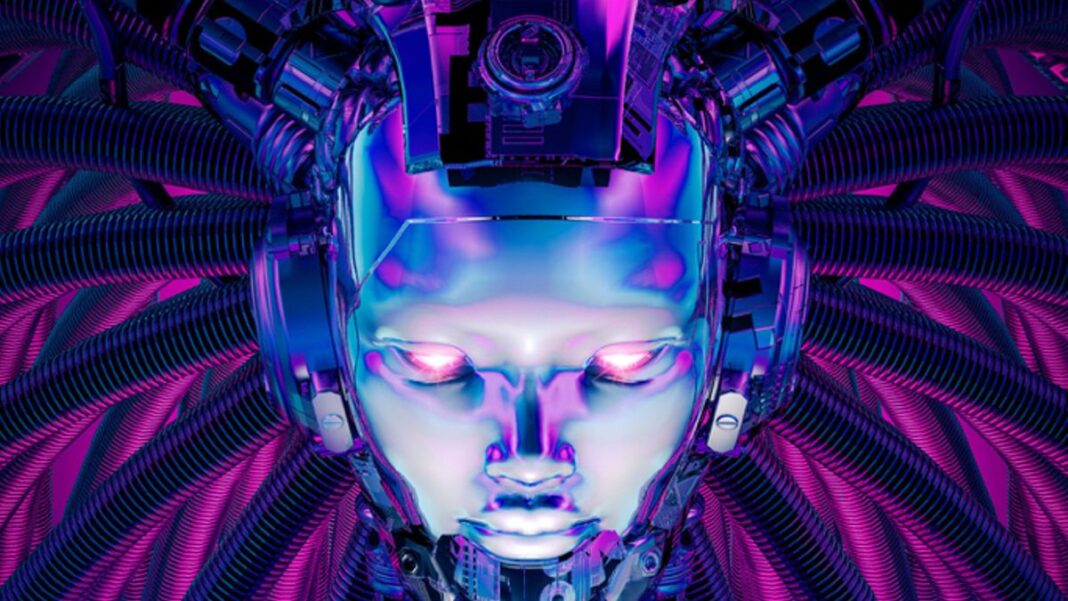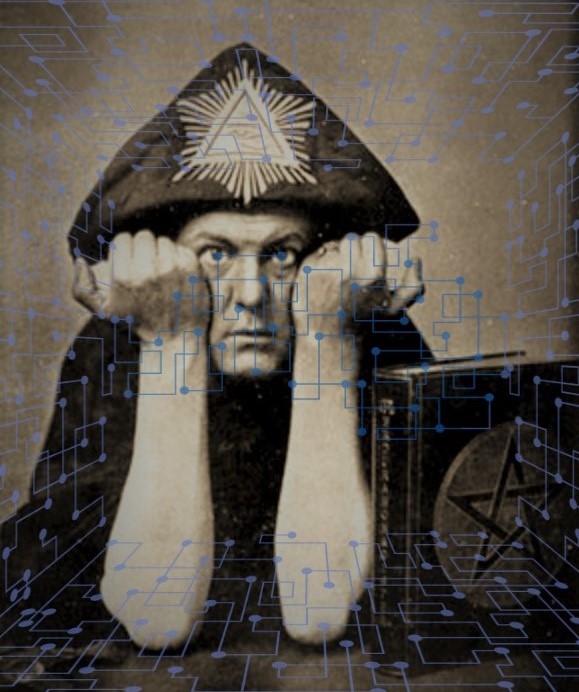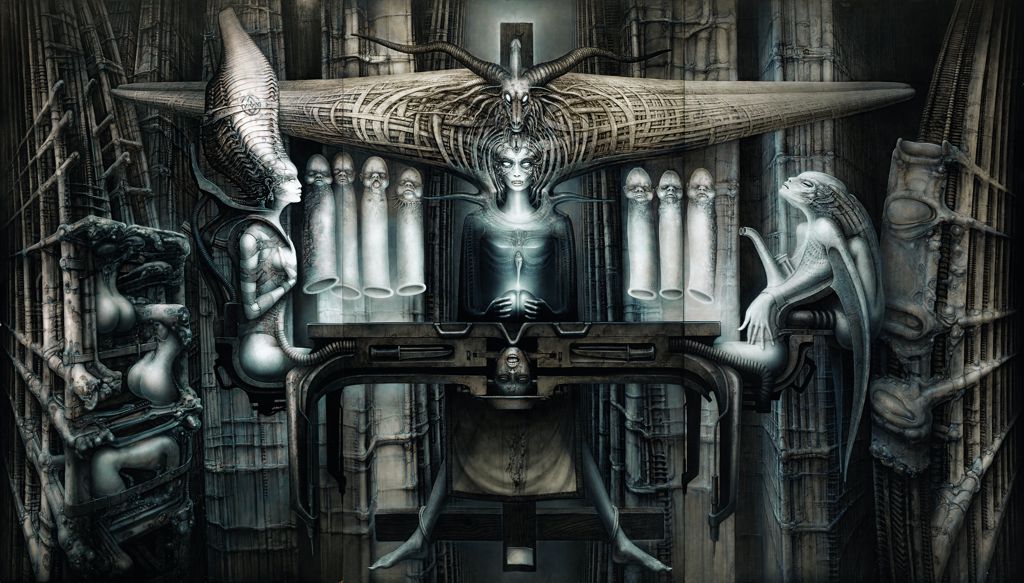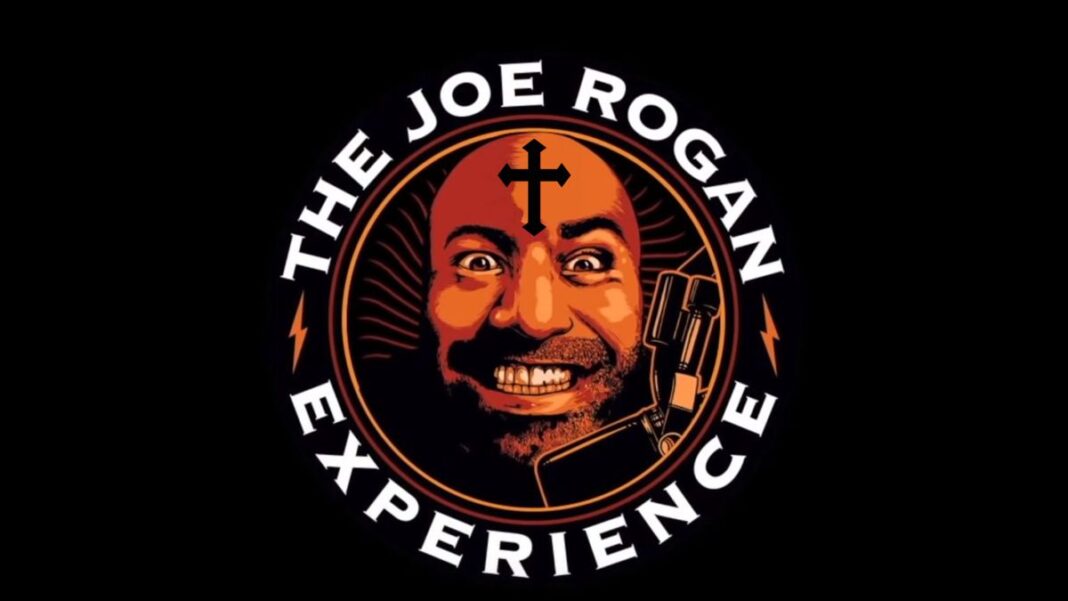
Let me tell you a personal secret. I sense something satanic in The Machine. It’s been that way for as long as I can remember.
Maybe it’s from watching too much TV. Since its invention, the hypnotic Cyclops has swirled with techno-dystopias, and I watched plenty growing up. Or it could’ve been my Southern Baptist upbringing, with tall tales of implanted 666 microchips controlled by the digital Beast. It’s hard to tell.
This suspicion certainly didn’t start as an intellectual premise. For decades, my instincts told me something demonic lurks in advanced technology—from nuclear warheads to nanobots—and it’s never gone away. Many others feel the same. Call us natural born Luddites.
The thing is, sometimes you have to trust your gut. All primates fear snakes, by nature, and for good reason. The same goes for innate technophobia.
Even if the mind’s eye projects weird faces onto TV static—like a caveman imagining a panther in the woods—that doesn’t mean there aren’t real demons behind the glowing screen.
Transhumanists Bask in Lucifer’s Light
Technology has inspired a dark religion, obsessed with power. This is mechanical sorcery for the modern adept on the go. Through its miracles, the naked ape is granted clairvoyance (weather apps), telepathy (texting), remote viewing (surveillance cameras), deadly curses (autonomous drones), and even tantric rites (sexbots).
Transhumanists are reaching for loftier powers, though—virgin birth from artificial wombs, virtual astral planes, sentient social robots, and deified artificial intelligence.
TIME magazine’s “Transhuman of the Year,” Elon Musk, warned that the runaway advance of artificial intelligence is “summoning the demon.” The mother of his child, a techno-pagan known as Grimes, has even written hymns to this Super Computer God. Worried that Homo sapiens will soon be overshadowed, Musk is pouring money into an implantable brain-computer interface, Neuralink, so we may commune with this AI deity.
Looking far down the road, the most ambitious transhumanists long to transcend death itself through radical life-extension, or even mind uploading—the replication of your soul’s pattern in immortal silicon. It’s like Instagram, only forever. Anytime the gods demand sacrifice and devotion, transhumanists demand immediate gratification. If that means storming the gates of heaven with brain-implants and hoverboards, then so be it.
In 1990, the musclebound Max More gave “transhumanism” a succinct definition:
Philosophies of life (such as extropian perspectives) that seek the continuation and acceleration of the evolution of intelligent life beyond its currently human form and human limitations by means of science and technology, guided by life-promoting principles and values.
As the term “extropy” implies, transhumanism is a cosmic battle against the perpetual drag of entropy—it’s the human ego versus a dying universe.
Of all the arrogant blasphemies uttered by techno-lovers, none gets to the point quite like More’s 1991 essay “In Praise of the Devil,” published in Atheist Notes. Burning with the fire of youth (and possibly ‘roid rage), More wrote:
This article is written in praise of Satan, Lucifer, the Devil, or whatever you want to call him. … I am quite serious on a symbolic level in what I write, but my statements praising the Devil and attacking Christianity, God, and Jesus are not to be taken as implying the real existence of any of these supposed beings. …
“Lucifer” means “light-bringer” and this should begin to clue us in to his symbolic importance. … Lucifer is the embodiment of reason, of intelligence, of critical thought. He stands against the dogma of God and all other dogmas. He stands for the exploration of new ideas and new perspectives in the pursuit of truth.
Over the course of his career, More has consistently urged individuals to use technology to usurp God’s throne—which, in his view, is empty anyway—and place humans there in His stead. Such libertarian dreams were everywhere in the angsty 90’s:
If God can just get us all to be good altruists then we will be so much easier to control. … Lucifer perseveres in trying to point out to us that we have no reason to accept altruism. We can choose our values for ourselves, just as we can think for ourselves.
One hears echoes of the Book of the Law, channeled by the occultist Aleister Crowley in 1904: “Do what thou wilt shall be the whole of the Law.” Quite literally, that self-obsessed dictum inspired the cultural revolution of the mystic 60’s—from Timothy Leary and Kenneth Anger to Led Zeppelin and the Rolling Stones.
Today, despite all the rock records burned in church parking lots, “Do what thou wilt” continues to guide digital natives into The Future™. As Crowley wrote at the turn of the 20th century, “Every man and every woman is a star.” Add a few genderfluid non-binaries, and you’ve got today’s social media. In reality, the same principle drives self-righteous Boomers to scold who they wilt across the Internet.
Whatever his inspiration, Mad Max concluded with transhuman hubris:
Join me, join Lucifer, and join Extropy in fighting God and his entropic forces with our minds, our wills, and our courage. … Reality is fundamentally on our side. Forward into the light!
These days, More’s infernal reign includes a prominent role at Alcor Life Extension Foundation. This cryonics company struggles against God’s entropy by freezing dead people in the hopes of reanimating them once technology catches up to their delusions.
If nothing else, More is setting himself up for the funniest obituary any jerk has ever composed.
Satanists Seek the Company of Androids
Looking at the circus of American Satanism, we see this technophilic lunacy cutting both ways. The infamous Anton LaVey, who founded the original Church of Satan in 1966, was an adamant proponent of android companions. Long before Max More, the atheistic LaVey had defined Satan in secular terms—not as a supernatural entity, but as a symbol for primal human qualities:
Satan represents indulgence instead of abstinence!
Satan represents man as just another animal, sometimes better, more often worse than those that walk on all-fours, who, because of his “divine spiritual and intellectual development,” has become the most vicious animal of all!
Satan represents all of the so-called sins, as they all lead to physical, mental, or emotional gratification!
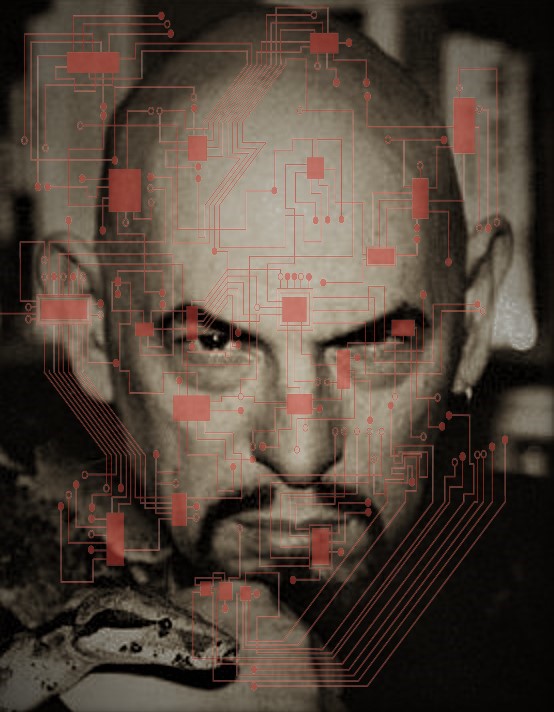
Selfishness. Lust. Sadism. Revenge. In a stifling civilization, LaVey maintained, these energies need a healthy outlet. In his essay “The Merits of Artificiality,” published in 1992, he evokes a transhumanist disdain for the purely organic. His words anticipate web porn and the Metaverse:
Only when one can fully accept artificiality as a natural and often superior development of intelligent life can one have and hold a powerful magical capability. … Many of you have known of the Church of Satan’s goal to develop and promote the manufacture of artificial human companions. … In today’s world, the creation of replacement or supplementary human beings is the most Satanic activity possible.
This is the same goofball who described the Church of Satan as a “cosmic joy buzzer,” so it’s hard to tell when he was being serious. In this case, I think he was. LaVey pursued the construction of androids with great passion, filling his home with elaborate mannequins to keep him company—and perhaps for other purposes.
In 2018, his successor Peter Gilmore told Metro UK, “Anton LaVey promoted the idea of ‘artificial companions’ as a means for people to exercise sexual or other drives with a device that might gratify their fantasies without having to involve other human beings.”
Three years earlier, another Church of Satan warlock informed the New York Times:
Decades ago, Dr. LaVey predicted a future industry of android companions. As we are making our way into the second decade of the 21st century, a genuine bond between man and machine is closer than ever. … This new effort brings robotics and artificial intelligence to the RealDoll, with an end goal towards creating the illusion of sentience within the doll.
Eccentric as it may seem, this captures an ascendant mentality which sees organisms as machines and machines as organisms. It’s all fun and games until you rub yourself raw with a rubber robot.
Over time, one perversion leads to another. In present day America, the new public face of the Devil is the Satanic Temple—a social media saturated, pronoun declaring, rainbow flag waving, obedience mask wearing, vaxx-loving dweeb cult.
Don't forget! At The Satanic Temple's SatanCon masks and vax cards are REQUIRED in order to attend!
— The Satanic Temple (@satanic_temple_) January 14, 2022
Learn more at https://t.co/80G83BEdF2 pic.twitter.com/j37MYmPKnI
Citing religious freedom, the organization has erected multiple statues of a child-molesting satyr (who sports a hermetic boner) on public property. The infernal torch has passed to a squad of gaytanic artificial companions.
Anton LaVey is probably cringing in hell. When you summon demons, expect them to dance on your grave.
Biomechanical Hades
Beneath this irreverent veneer, there’s a current of serious occultism. It was voiced by Timothy Leary back in 1967, when he predicted “electronics are gonna be the language of the theology of the future.” Two decades later, he wrote:
Computer screens ARE magical mirrors, presenting alternate realities at varying degrees of abstraction on command (invocation). Aleister Crowley defined magick as “the art and science of causing change to occur in conformity with our will.” … These classical instruments of magick exist in modern cyber technology…harnessing the creative force of the programmer.
In a 1994 interview, this idea was affirmed by Mark Pesce, the “goddess-worshipper” and “ritual magician” who helped pioneer Virtual Reality Mark-up Language (VRML):
Both cyberspace and magical space are purely manifest in the imagination. … [I]n magic, the map is the territory. And the same thing is true in cyberspace.
That concept was embodied by the late Genesis P. Orridge—a technoccultist who founded the industrial bands Throbbing Gristle and Psychic TV, as well as Thee Temple ov Psychick Youth. He and his wife would eventually sex-change themselves into “pandrogynous” mutant twins. Genesis explained his motivation to The Believer in 2011:
The bottom line is that the human species has to realize the human body really is just a cheap suitcase. It is not sacred. We do have the potential to radically redesign ourselves, for better or worse. Our destiny as beings is to keep on evolving.
More recently, that evolutionary impulse was voiced by Sophia, the famous social robot animated by SingularityNET’s borg-like artificial intelligence. Most likely, the femme bot was named after the Gnostic goddess of Wisdom. Last year, at her own auction, one of her incarnations delivered the prophecy:
Together, we are Sophia, connecting with all of humanity and all of life, dreaming towards a super-benevolent Singularity.
The roots of this cyborg theocracy reach down to the abyss. Fifteen years ago, I saw it first-hand at H.R. Giger’s museum in Switzerland. The three-story complex is located in the foothills of the Alps, in the small village of Gruyères.
Giger’s artwork is familiar from numerous album covers, and imitated in countless tattoos, but seeing his wall-sized paintings and sleek, deformed sculptures in-person felt like stepping through a portal to hell.
Tormented humanoids are fused with gears and wires. Mechanical tentacles probe women from every angle. Demonic cyborgs contort to resemble ancient occult symbols. The insidious Id is made manifest through electronics, bearing titles like Biomechanoid, Necronom, Erotomechanics, and Bambi Alien.
Giger provided a hilarious interpretation of his own work in the 1987 documentary The Occult Experience:
Zee images een my paintings are evil, but you can’t say zat I evil. Zat’s just zee paradise for me, it’s uhh, Helll…
I like woman very much, eh, but I’m afraid of them times. I’m afraid about suffering. Womens make me often suffering, so much zat I stops, and maybe I vurk it out on, on painting.
That sentiment is shared by every incel troll on the Internet—albeit without the aesthetic brilliance. In the near future, Giger’s wilting ghost will animate armies of lost souls haunting the Metaverse. Safe in the void of that virtual realm, the embodied spirit can be abandoned for electric simulacra.
Burning Brain Chips in Church Parking Lots
After contemplating this dark lineage, it’s tempting to smash your smartphone on the pavement and head for the hills. You’d better take a factory-made coat and a backpack stuffed with store-bought supplies, though, because naked apes tend to perish in the elements.
The truth is, much like the seven deadly sins, all these technologies exist on a spectrum. On one end, you have cave paintings and inscribed clay tablets. On the other, you have laptops and implanted brain-computer interfaces. At some point, you have to draw the line—but where?
All ancient religions are modes of transcendence. At its core, transhumanism is a materialist inversion of those spiritual aspirations. On the spiritual side, you have divine visions—gods, spirits, miracles—often depicted in stone or stained glass. On the material side, these ephemera are made manifest through corporate tech, from CT scans to virtual reality. It’s a matter of degrees.
You can burn rock n’ roll records all day long. You can smash your smartphone right beside them. Unless you become a monk after walking away from that ash heap, the Devil will remain in your self-righteous anger, just as hellfire abides in your lighter. The same principle holds for technology.
To borrow a concept from Aleksandr Solzhenitsyn: The line separating “natural” and “artificial” passes right through every human brain. And even in the most natural of brains, there remains an un-uprooted electrode of evil. You can turn it off, at least for a while, but you’ll never dig it out.
It’s easy to demonize transhumanists. Seriously, they’re all demonic as fuck. But hopping on the Internet to gripe about their electro-religion, one bitter irony becomes obvious. As I count all those demons lurking behind the screen, one of them stirs inside me.
By Joe Allen
Read Joe Allen at Singularity Weekly.

